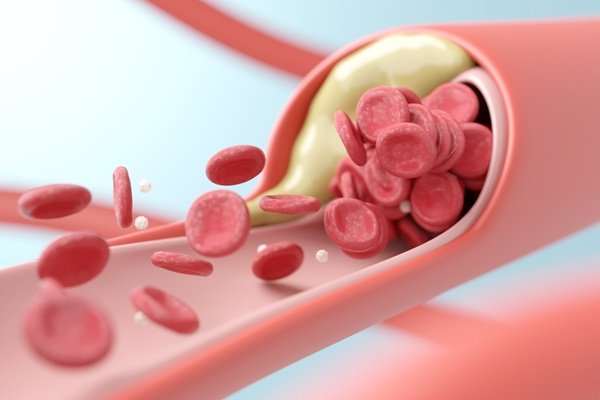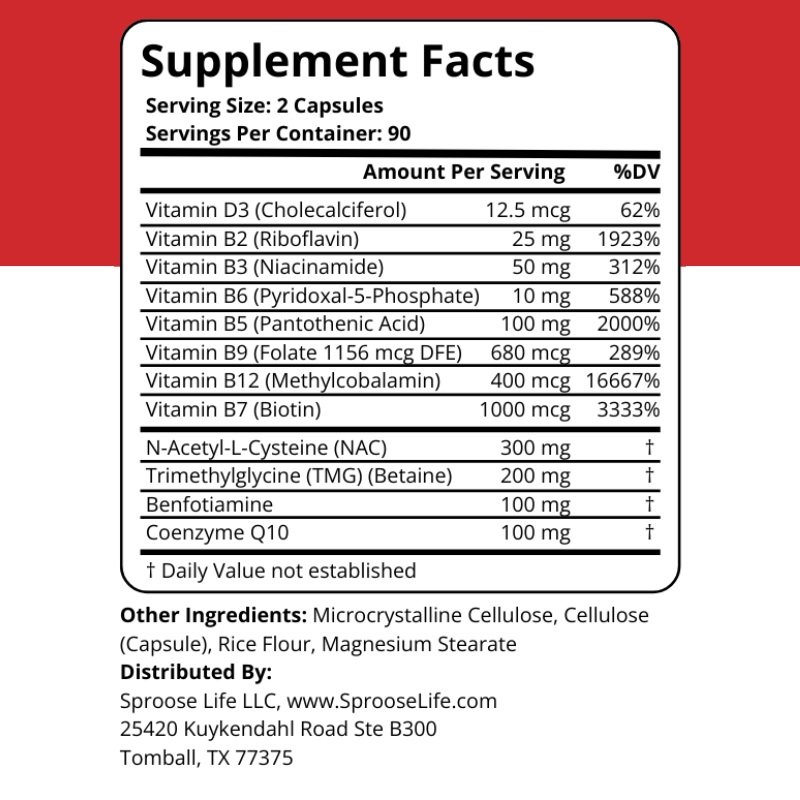VascularControl – 180 Capsules (3 Months)
$69.00
Ingredients in VascularControl address the root causes of heart disease, offering benefits for statin users, at-risk individuals, and even healthy people seeking prevention. Key Benefits:
- Lower blood pressure
- Reduce LDL (bad) cholesterol levels
- Increase HDL (good) cholesterol levels
- Lower triglycerides
- Improve blood flow
- Improve glucose metabolism and insulin sensitivity
Statin Users: Certain statins may lower your CoQ10 levels. VascularControl is enriched with C0Q10 and can help restore this essential compound.
Dr. Robert Vogel talks about VascularControl
VascularControl
According to the World Health Organization (WHO), CardioVascular Disease (CVD) accounts for approximately 32% of all deaths. In the United States alone, about 1 in 4 deaths is attributed to heart disease, equating to approximately 700,000 deaths annually. These figures emphasize the severity of this epidemic and the urgent need for effective solutions.

Statins: Their Role in Cardiovascular Disease Management
Statins are among the most commonly prescribed drugs for managing CVD. These medications lower cholesterol levels by inhibiting the enzyme HMG-CoA reductase, which plays a key role in cholesterol synthesis in the liver.
Benefits of Statins
Statins are highly effective in reducing LDL (bad) cholesterol, lowering the risk of heart attacks and strokes. They also have modest anti-inflammatory effects, which help stabilize arterial plaques and reduce the likelihood of rupture.
Statins: Side Effects and Limitations
Despite their effectiveness, statins come with significant side effects, including:
Muscle pain and weakness (myopathy): A common side effect that reduces quality of life.
CoQ10 depletion: Statins block the same pathway that produces CoQ10, leading to fatigue and muscle problems.
Liver enzyme elevation: Indicative of potential liver stress.
Diabetes risk: Statins can impair glucose metabolism, increasing the likelihood of developing diabetes.
Digestive discomfort: Including nausea, constipation, or diarrhea.
These side effects highlight the need for supportive measures to enhance the benefits of statins while mitigating their drawbacks.
Ingredients: How VascularControl Can Support Cardiovascular Health
VascularControl offers a synergistic blend of heart-healthy ingredients, including Vitamin D3, a Vitamin B-Complex, NAC, Betaine and CoQ10. These nutrients work together to address the underlying causes of cardiovascular disease while supporting overall heart function.

Vitamin D3
Vitamin D3 helps regulate blood pressure by reducing renin-angiotensin system (RAS) activity and lowering arterial stiffness. While the exact mechanisms are still being studied, there is evidence to suggest that Vitamin D3 may help reduce LDL (bad) cholesterol.
Vitamin D3 plays a role in improving insulin sensitivity and glucose metabolism. It helps regulate calcium levels in cells, which are crucial for insulin secretion. Studies suggest that adequate Vitamin D levels are associated with a reduced risk of insulin resistance and type 2 diabetes.
Vitamin B3 (Niacin)
Niacin is widely recognized for its ability to improve cholesterol levels. According to research published in The New England Journal of Medicine; Niacin can reduce LDL (bad) cholesterol by 10% to 15%, lower triglycerides by 20% to 50% and increase HDL (good) cholesterol by 15% to 35%.
Vitamin B12 (Methylcobalamin), B2, B6 and B9
Vitamin B12 works in conjunction with other B vitamins, particularly B2, B6 and B9, to lower homocysteine levels and thus the risk of hypertension.
It supports red blood cell production, ensuring proper oxygen transport and circulation, which helps prevent atherosclerosis and maintain healthy blood pressure.
Vitamin B5 (Pantothenic Acid)
Vitamin B5 is crucial in the production of coenzyme A, which is involved in breaking down fatty acids. A study published in Atherosclerosis found that pantothenic acid can help lower total cholesterol and LDL cholesterol levels, while increasing HDL cholesterol.
Pantothenic acid is involved in carbohydrate metabolism by supporting the production of coenzyme A, which is critical for glucose utilization. It may improve insulin sensitivity by enhancing energy production in cells.

Vitamin B7 (Biotin)
Biotin is essential for fatty acid synthesis, which helps maintain healthy cholesterol levels.
Biotin has a direct role in blood sugar regulation, which indirectly impacts blood pressure and the risk of hypertension. It enhances the activity of enzymes involved in glucose metabolism, including glucokinase, which helps the liver process glucose efficiently. Biotin supplementation has been shown to improve fasting blood sugar levels in some studies.
NAC (N-Acetyl-L-Cysteine)
NAC promotes cardiovascular health by reducing oxidative stress, improving endothelial function, and preventing LDL oxidation.
It enhances blood flow by promoting nitric oxide production and reduces the risk of hypertension and atherosclerosis by improving vessel elasticity and preventing clots.
NAC reduces oxidative stress and inflammation, which are significant contributors to insulin resistance. By increasing glutathione levels, NAC helps protect pancreatic beta cells (responsible for insulin production) from damage.
Trimethylglycine (TMG, Betaine)
Betaine lowers homocysteine levels, reducing blood vessel damage and improving endothelial function. This supports lower blood pressure and reduces the risk of atherosclerosis. Betaine also aids in liver fat metabolism, indirectly supporting healthier cholesterol levels.
Vitamin B1 (Benfotiamine)
Benfotiamine improves glucose metabolism by reducing the formation of advanced glycation end-products (AGEs), which are harmful compounds that accumulate in high blood sugar conditions and can stiffen the arteries. This reduces the risk of high blood pressure and improves blood vessel function, supporting smooth blood flow and reducing the risk of atherosclerosis.







